Getting Started with Cinematic Videography
In the world of cinematic videography, selecting the right camera is crucial. A well-chosen camera can elevate a project from ordinary to extraordinary, allowing creators to express their unique vision. With so many options available, understanding individual videography needs is the key to making the best decision.
This article will explore essential gear for both entry-level and professional videographers. From key camera features to top brands and must-have accessories, readers will discover what it takes to shoot like a pro. Let’s dive into the ultimate guide for crafting stunning cinematic visuals!
Amazon.com
Understanding Videography Needs
Cinematic videography can take many forms, each with its own set of requirements that influence gear selection. For instance, documentary videographers often prioritize portability and battery life, as they may be filming in unpredictable environments where quick setup is essential. On the other hand, those working in narrative filmmaking typically need a camera with superior low-light performance and advanced frame rates to capture dramatic scenes effectively.
Types of Videography
Moreover, videographers must also consider the aesthetic they aim to achieve. A vibrant color palette may require different gear than a moody, atmospheric project.
By understanding these varied needs, creators can make informed decisions about the cameras and accessories best suited for their projects.
Getting clarity on what each type of videography requires paves the way for an exploration of key camera features that will elevate their projects to cinematic brilliance.
Key Features to Look for in a Camera
When selecting a camera for videography, several key features can dramatically impact the quality and creativity of visual storytelling. Understanding these elements helps individuals make informed choices tailored to their specific needs.
Resolution
Resolution is a critical factor, particularly for high-definition projects. A camera that captures 4K or even 6K footage offers superior clarity and allows for cropping in post-production without sacrificing quality. This is essential for projects aiming for a cinema-like experience.
Frame Rates
Next is the frame rate. Standard is 24 frames per second (fps) for a cinematic look, but options for 30, 60, or even higher rates open avenues for slow-motion shots, adding drama or emphasis to specific moments. Consider what fits best with the narrative style being pursued.
Sensor Size
The sensor size affects depth of field and low-light performance. Larger sensors can produce more detailed images with beautiful bokeh effects, making them ideal for narrative films. Conversely, smaller sensors may be more practical for documentary work where quick adaptability is key.
Low Light Performance
Finally, low light performance is essential for versatile shooting conditions. A camera that excels in darker environments allows for greater flexibility in location choices, ensuring that inspiration is not hindered by inadequate lighting situations.
With these crucial features in mind, aspiring videographers can narrow down their options effectively. Next, we’ll explore some of the top camera brands in the industry that cater to a range of skill levels and budgets.
Top Camera Brands for Videographers
When it comes to videography, not all cameras are created equal. Different brands have carved their niches, becoming go-to choices for filmmakers and content creators alike. Here’s a look at some of the most reputable camera brands renowned for their videography capabilities.
Canon
Canon has long been a favorite among videographers, especially for its robust color science and ergonomic designs. The Canon EOS R series offers excellent low-light performance and versatile lens options, making it ideal for narrative filmmakers chasing beautiful visuals. However, users often note that Canon’s autofocus can be slower compared to some competitors, particularly in fast-moving scenes.
Sony
Sony is known for its innovative technology and high-quality sensors. The Sony Alpha series, particularly models like the A7S III, excels in low-light conditions and offers impressive 4K recording capabilities. Many videographers appreciate its exceptional autofocus and built-in stabilization. On the downside, some users find Sony’s menus less intuitive and overwhelming for newcomers.
Panasonic
Panasonic offers a strong selection for hybrid shooters with models like the Lumix GH5, which is particularly popular for its video capabilities. It provides excellent image stabilization and a variety of recording formats. However, Panasonic cameras sometimes lag behind in autofocus speed compared to Canon and Sony.
Fujifilm
Fujifilm is gaining traction among videographers due to its stunning color profiles and film simulation modes. The X-T series delivers remarkable image quality and classic design elements. While its video features are sound, some users wish for more comprehensive 4K options.
As videographers consider these brands, they should weigh their specific needs against the strengths and weaknesses each brand offers. The choice of a camera can significantly affect one’s storytelling journey. In the next section, we will explore the best cameras tailored for entry-level videographers, ensuring that even beginners can start their cinematic adventure with the right tools.
Best Cameras for Entry-Level Videographers
For those embarking on their videography journey, finding the right camera is crucial. Entry-level cameras should be affordable and user-friendly, allowing beginners to focus on storytelling rather than technical complexities. Here’s a look at some top contenders that fit the bill.
Canon EOS Rebel T8i
The Canon EOS Rebel T8i is a remarkable starting point for budding videographers. This DSLR offers a 24.1MP sensor with 4K video capabilities, making it adaptable for various projects. Beginners appreciate its intuitive touchscreen, built-in tutorials, and solid autofocus, which simplifies the shooting process.
Sony ZV-E10
Another fantastic option is the Sony ZV-E10, designed specifically for content creators. This mirrorless camera features a 24.2MP APS-C sensor, providing excellent low-light performance and 4K video recording. Its vari-angle touchscreen and enhanced audio input make vlogging and on-the-go shooting a breeze, allowing users to capture dynamic footage effortlessly.
Panasonic Lumix GX85
For those leaning towards a compact option, the Panasonic Lumix GX85 is a gem. This mirrorless camera features dual image stabilization, allowing for smooth handheld shooting. With a Micro Four Thirds sensor, it excels in producing high-quality video at 1080p, proving that great results can come in smaller packages.
Armed with any of these entry-level cameras, novice videographers can confidently begin their creative explorations. Each option provides essential features while being friendly to budget constraints, making them perfect for capturing moments with cinematic flair. In the upcoming section, we will delve into the best cameras ideal for those ready to take their videography skills to a professional level, inspiring the next chapter in their artistic journey.
Best Cameras for Professional Videographers
For the serious filmmaker, the right camera can make all the difference in bringing a vision to life. Professional videographers demand equipment that offers advanced features, exceptional image quality, and robust performance under various shooting conditions. Below are some top choices that exemplify what’s available in high-end videography gear.
Canon EOS C300 Mark III
The Canon EOS C300 Mark III continues to be a staple in the film industry for its Super 35mm Dual Gain Output (DGO) sensor, which delivers pristine 4K images. Its modular design and outstanding autofocus make it adaptable for a wide range of productions, from narrative films to documentaries. The camera’s dual pixel autofocus ensures sharp focus even in challenging conditions, allowing filmmakers to concentrate on storytelling.
Sony FX6
Another strong contender is the Sony FX6, a compact powerhouse that combines professional features with portability. It boasts a full-frame sensor and can record 10-bit 4K videos, making it perfect for projects that require both depth and detail. Additionally, its advanced stabilization system is a favorite among videographers who shoot on the move, ensuring smooth footage without cumbersome rigs.
Panasonic Lumix S1H
The Panasonic Lumix S1H is noteworthy for its stunning 6K video capture and exceptional low-light capabilities. This mirrorless camera is Netflix-approved, making it a go-to for many professionals looking to produce content for streaming platforms. Its versatility and impressive battery life allow for longer shoots without interruption, giving filmmakers confidence in challenging environments.
With these top-tier cameras, professional videographers can explore innovative storytelling techniques and elevate their projects to new heights. Next, we will explore essential accessories that can enhance the videography experience, ensuring every frame tells a compelling story.
Accessories to Enhance Videography
To elevate videography from good to excellent, the right accessories are essential. These tools not only complement cameras but also significantly enhance video quality and improve overall production value.
Lenses
While the camera body is vital, lenses are equally crucial. Depending on the type of shots desired, videographers often invest in various lenses:
Stabilizers
Stabilizers, such as gimbals or handheld rigs, help produce smooth, cinematic footage. For instance, a three-axis gimbal can eliminate shaky footage while moving, creating a professional look even in action-packed sequences.
Microphones
Quality audio is just as important as high-definition video. An external microphone greatly enhances sound clarity. The Movo VXR10 Universal Shotgun Microphone is a popular choice for the clarity and directionality it brings to video projects. This microphone is compact, making it easy to integrate into various setups, whether for interviews or vlogging.
These accessories can transform the shooting experience, enabling videographers to realize their creative visions with precision and professionalism. As one becomes equipped with the right gear, it’s essential to keep in mind the bigger picture—creating compelling narratives through the chosen visuals.
In the next section, we will highlight essential thoughts on selecting the best videography gear to suit individual needs and aspirations.
Final Thoughts on Choosing Your Videography Gear
In the world of videography, selecting the right gear is essential for achieving stunning results. Each videographer has unique needs and objectives, making it crucial to assess personal goals, budget, and style before investing in equipment. By understanding the key features and exploring options from top brands, they can find the perfect camera that fits their artistic vision.
Ultimately, choosing the right gear is just the beginning of the creative journey. Armed with the right tools, videographers can bring their stories to life—so it’s time to gear up and shoot like a pro!


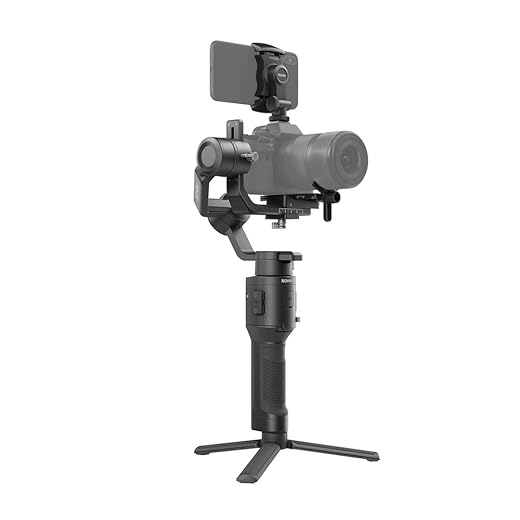
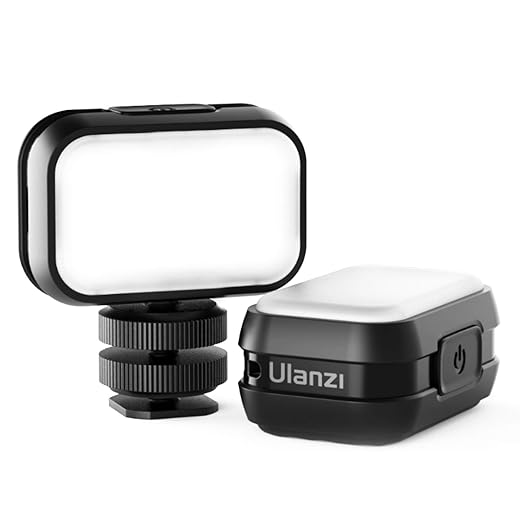



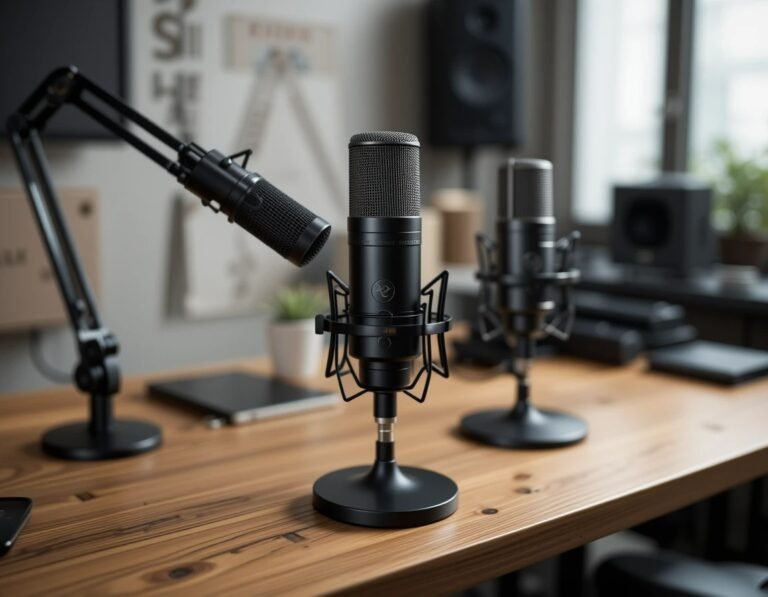
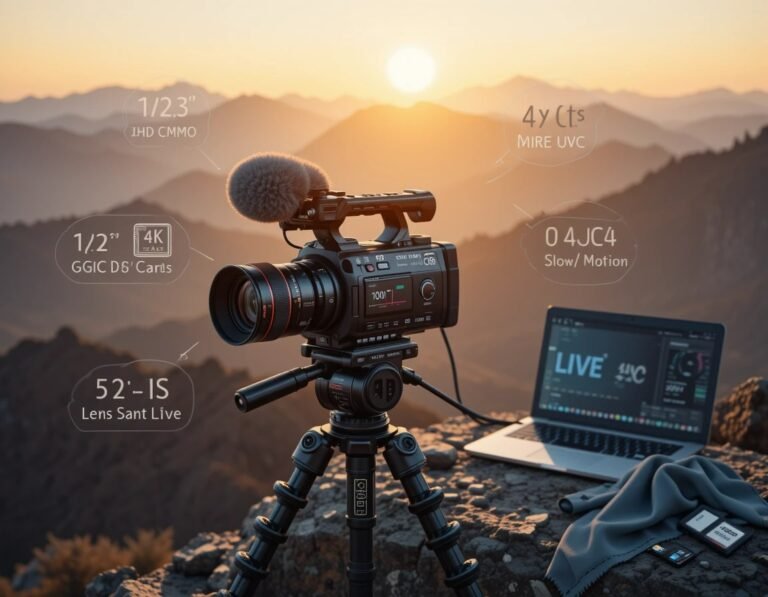
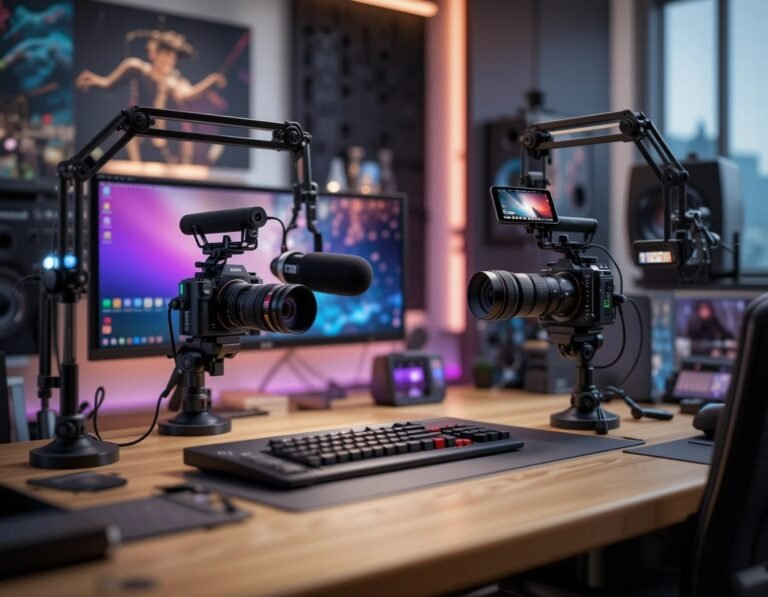


I’m currently on the fence about upgrading from my old camera. The Canon XA60 looks amazing, but I’m not sure if I actually need all that power. Any thoughts?
If you’re serious about videography, I say go for it! 4K is the new standard, and you’ll be future-proofing yourself.
Right on, Emily! The XA60 is definitely a solid choice for anyone looking to take their work to the next level.
I have the Rebel T7 but I feel like I need some better lighting for my indoor shoots. Anyone tried the PICTRON VL28? 🤔
Great suggestion, Olivia! Lighting can really make a difference in your videos.
Yup! The VL28 is super bright and lightweight. Perfect for vlogging or just shooting at home. You won’t regret it!
I think the Canon XA60 is a bit pricey for what I need. I’m leaning towards something more budget-friendly for now. What do you guys recommend?
Have you looked at the Rebel T7? It’s affordable and still packs a punch!
Great point, James! The Rebel T7 is perfect for those just starting out.
Just got my hands on a DJI Ronin-SC and wow, it’s a game changer! My shots look pro now. Anyone else using it?
I’ve been using it for a few months too! It takes a bit to get used to, but once you do, it’s worth it!
Awesome to hear, Kevin! Stabilization can really elevate your videos.
Thanks for the recommendations! I keep hearing about the importance of good audio. Is the Movo VXR10 really that good?
Absolutely, Alex! It’s a great budget mic that offers solid quality.
It’s a lifesaver for interviews and vlogs! You won’t regret it.
I’m a total newbie and the idea of choosing all this gear is overwhelming! 😅 Can someone give me a recap of what I really need to get started?
I agree! And don’t forget about lighting. It can make or break your videos.
No worries, Diana! Start with a good camera like the Rebel T7, a decent tripod, and a microphone. You’ll be set!
Really loved this article! The section on getting started is super helpful. I just got a Canon EOS Rebel T7, and I can’t wait to try out some of the tips you mentioned. Do you think the DJI Ronin-SC is worth it for beginners? 🤔
Thanks, Sarah! The Ronin-SC is great for stabilization, especially for beginners looking to up their game.
Definitely! The Ronin-SC is easy to use and makes your shots look so smooth. I wish I had it when I started! 😅
This was a killer guide! I’m still learning the ropes but your breakdown of camera features really helped me understand what to look for. I’m seriously considering the Canon R50 next. Anyone have experience with it?
Thanks for the feedback, Emma! The R50 is a fantastic choice, especially for someone starting out with mirrorless cameras.
I’ve been using the R50 for a while and I love it! The autofocus is amazing.
I wish I could afford all this gear! 😩 I’m stuck with my phone for now. Any tips for mobile videography?
Yeah, and there are some great phone gimbals out there if you want to up your game!
You can still create amazing content with a phone! Just make sure you have good lighting and try to use stabilization apps.
Not gonna lie, I’m mostly here for the memes about videography. But this article was actually pretty informative. 😂 What’s the best accessory for beginners?
I’d also say a tripod is a must. You can’t go wrong with a stable shot!
Glad you found it helpful, Chris! A good microphone like the Movo VXR10 is essential for audio quality.